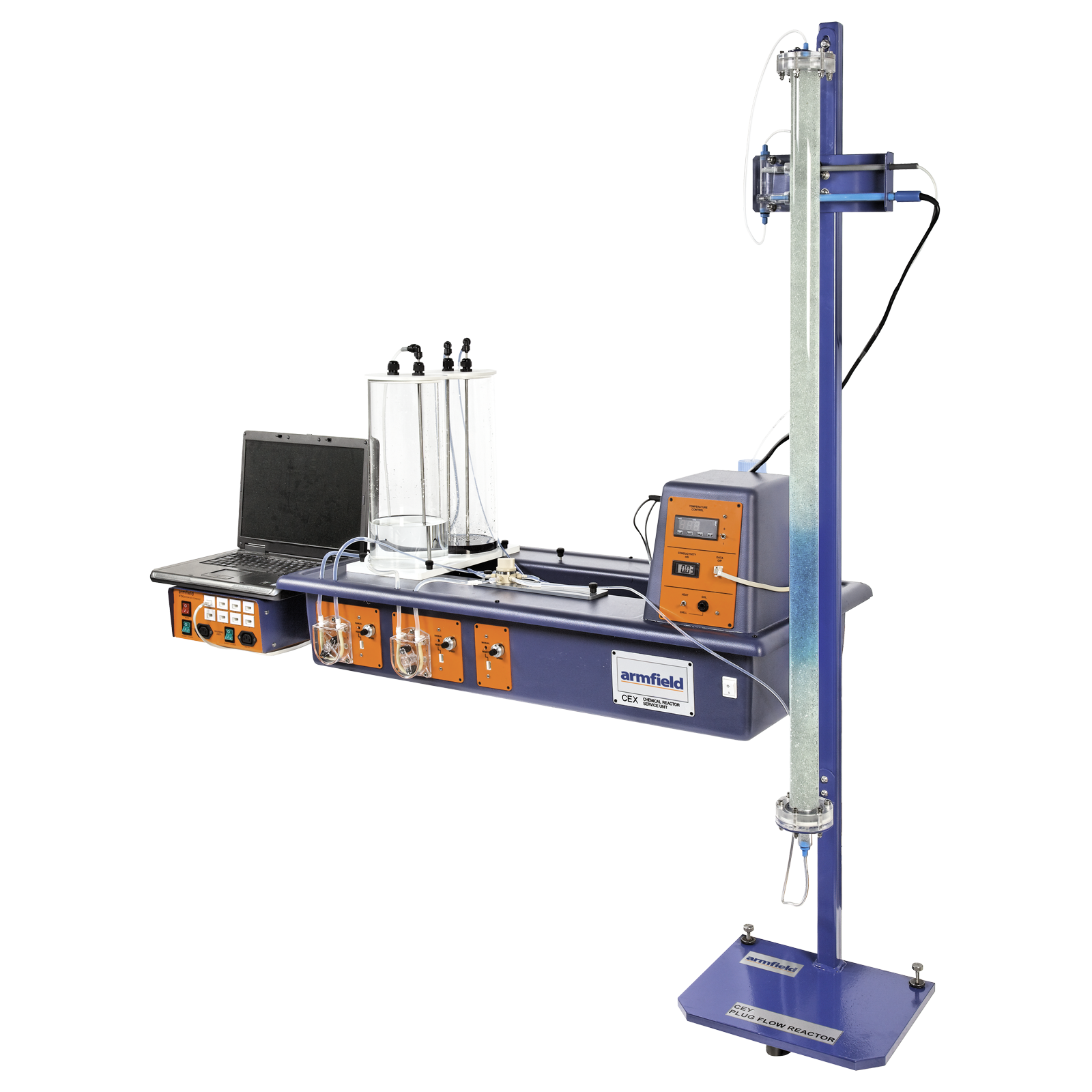
Laminar flow reactor
29 พฤษภาคม 2566
ผู้ชม 207 ผู้ชม
DESCRIPTION
The CEZ Laminar flow reactor is a tubular reactor made of clear acrylic, mounted on a floor standing steel frame with two diffusers packed with glass beads located at the ends. A static premixer at the bottom of the column provides premixing of the reagents entering the reactor to improve the flow distribution.
It includes two reagent vessels fitted with heat exchangers, mounted on the CEXC plinth. The heat exchangers are used to cool down the reagents before performing the experiment. A cold water jacket keeps the reactor contents at constant temperature in order to maintain the laminar characteristic. A thermostatically controlled supply of chilled water is required for this such as the CW-17.
A clear acrylic sensor block is mounted on the frame for the CEXC conductivity and temperature sensors. The reagents are fed to the reactor by the CEXC peristaltic pumps using PTFE tubing. Pulsation dampers are used to ensure a smooth flow.
Tracer experiments and conversion experiments may be demonstrated and followed visually. Conductivity data logging allows the student to apply the flow pattern characterisation theory and compare it with the experimental results.
EXPERIMENTAL CONTENT
- Determination of residence time distribution of a Laminar flow reactor
- Flow pattern characterisation – Step change
- Flow pattern characterisation – Pulse change
- Study of the reactor response to inlet perturbations: step change
- Effect of flow rate and feed concentration on the determination of flow pattern
- Effect of temperature on the laminar flow characterisation
- Demonstration of the flow pattern in the reactor and comparison with the theoretical model
- Determination of the steady-state conversion of a second order reaction
- Effect of flow rate and feed concentration on the steady-state conversion
- Visual monitoring of the steady state







